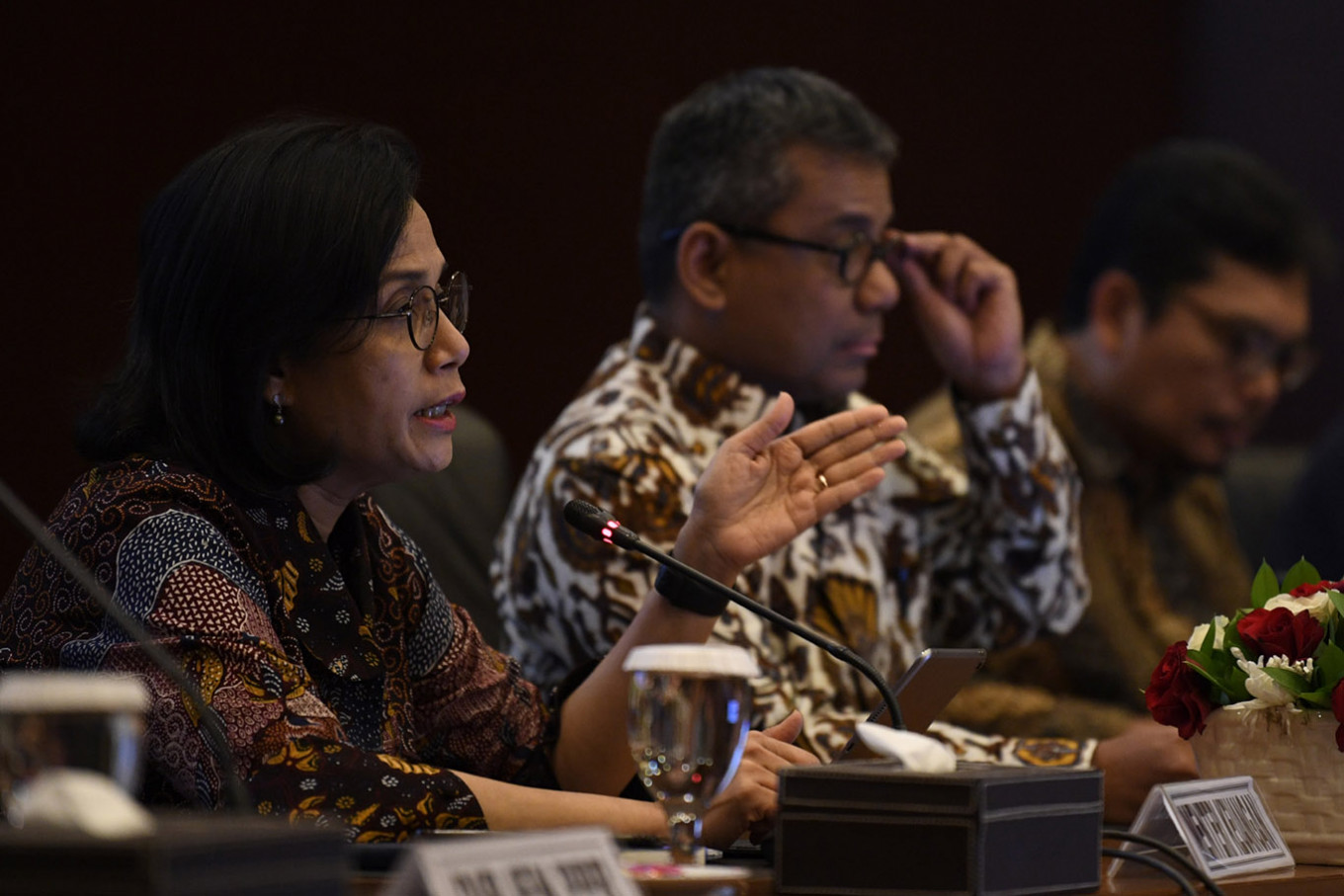Popular Reads
Top Results
Can't find what you're looking for?
View all search resultsPopular Reads
Top Results
Can't find what you're looking for?
View all search resultsIndonesia records $4b budget deficit in February as big-check stimulus spending looms
Change text size
Gift Premium Articles
to Anyone
I
ndonesia booked a state budget deficit of Rp 62.8 trillion (US$4.07 billion) as of February this year at a time when the government is rolling out multi-billion dollar stimulus packages to cushion the economic impacts of the COVID-19 pandemic.
Government spending growth slowed compared with the same period last year and revenue dropped, the Finance Ministry announced on Wednesday.
The total state revenue collected up to late February reached Rp 216.6 trillion, a 0.5 percent year-on-year (yoy) contraction, while state spending reached Rp 279.4 trillion, up by 2.8 percent yoy, ministry data show. The annual growth rate in state spending slowed from 9.2 percent in February 2018.
Finance Minister Sri Mulyani Indrawati said the economic slowdown caused by the spread of COVID-19 weighed heavily on the global and Indonesian economy.
Read also: Global recession risk spikes as world powers down, markets slump
She added that the assumptions underpinning the 2020 budget had changed due to the pandemic. These assumptions include economic growth, inflation rate, exchange rate and oil price, among other things.
“There was hope that the economy could grow better this year, but COVID-19 has changed economic activities and now we are alert to its impact on the state budget,” Sri Mulyani said.
Tax revenue contracted 5 percent to Rp 152.9 trillion mainly driven by a weakening oil and gas sector despite an increase of 51.5 percent in customs and excise revenue to Rp 25 trillion. The decline stands in contrast to 4.7 percent annual growth in February last year.
Government spending grew 11 percent to Rp 161.7 trillion driven by social spending despite a contraction of 6.7 percent in direct regional transfers to Rp 117.7 trillion. The growth rate in government spending represents a decline from 14.2 percent annual growth in February 2019.
Meanwhile, budget financing reached Rp 112.9 trillion, a contraction of 43.1 percent compared to the same period last year, or 36.8 percent of GDP, driven by a significant decrease in debt financing, namely sovereign debt papers and loans.
Read also: Lower income, rising debt expected as Indonesia unveils extra stimulus
Sri Mulyani previously said the budget deficit may widen to around 2.2 to 2.5 percent of GDP this year, with the forecast having taken into account big-check government stimulus packages to fuel the economy amid the COVID-19 pandemic.
Indonesia has so far announced 227 confirmed COVID-19 cases, with 19 deaths. Globally, the pneumonia-like illness has infected nearly 202,000 people and taken at least 8,000 lives. To cushion the economic impacts of the pandemic, Rp 120 trillion has been allocated from this year’s state budget for stimulus packages.










